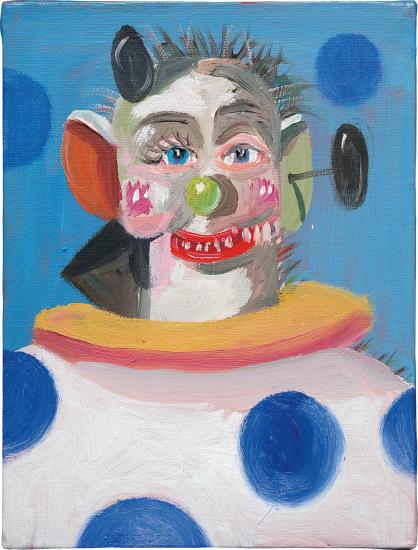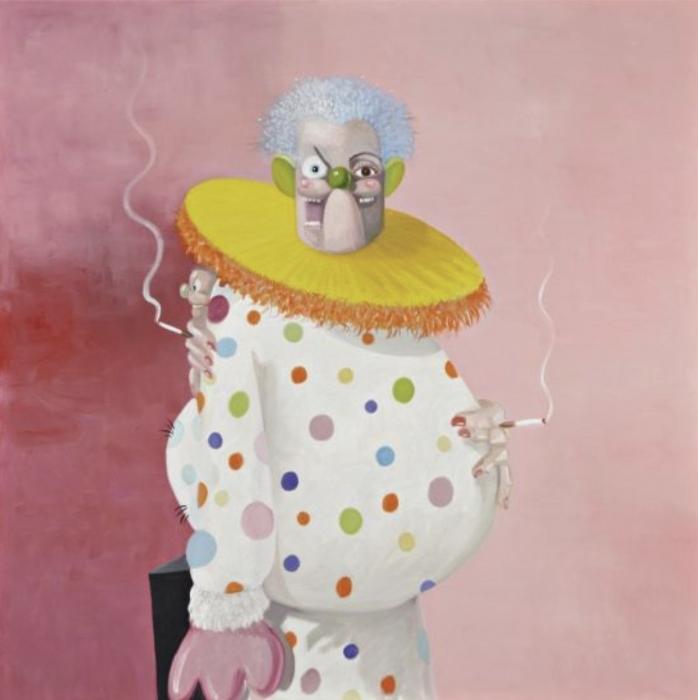George Condo's clown paintings represent a fascinating and significant aspect of his body of work, blending his distinctive "Psychological Cubism" with a grotesque yet humorous aesthetic. These works are characterized by their exaggerated, often distorted features, which evoke both a sense of comedy and a deeper psychological exploration.
Condo's fascination with clowns can be traced back to his broader interest in human consciousness and the multifaceted nature of identity. His clown paintings, such as "Cubist Clown" (2003), demonstrate his ability to merge classical influences with modern sensibilities. These works often feature vibrant colors and fragmented compositions, drawing inspiration from Cubism and Surrealism while maintaining a unique, contemporary edge (Sothebys.com) (Christie's).
The clown motif allows Condo to explore themes of absurdity and the human condition. His clowns are not just playful figures but are imbued with a sense of melancholy and existential angst. This duality is a hallmark of Condo's work, where the grotesque and the comic coexist, reflecting the complexity of human emotions. In "The Insane Clown" (2019), for example, Condo uses the clown figure to delve into the chaotic and often contradictory nature of the human psyche (Sothebys.com) (Maddox Gallery).
Condo's clowns also serve as a critique of societal norms and conventions. By exaggerating and distorting the features of his clown subjects, Condo challenges the viewer to look beyond surface appearances and consider the underlying psychological truths. This approach is evident in works like "Clown with Clock," where the whimsical yet unsettling portrayal of the clown raises questions about time, identity, and the passage of life (Sothebys.com) (Art in Context).
George Condo's clown paintings are a testament to his innovative artistic vision and his ability to blend historical references with contemporary themes. These works continue to captivate audiences with their rich, layered compositions and their profound exploration of the human condition.


